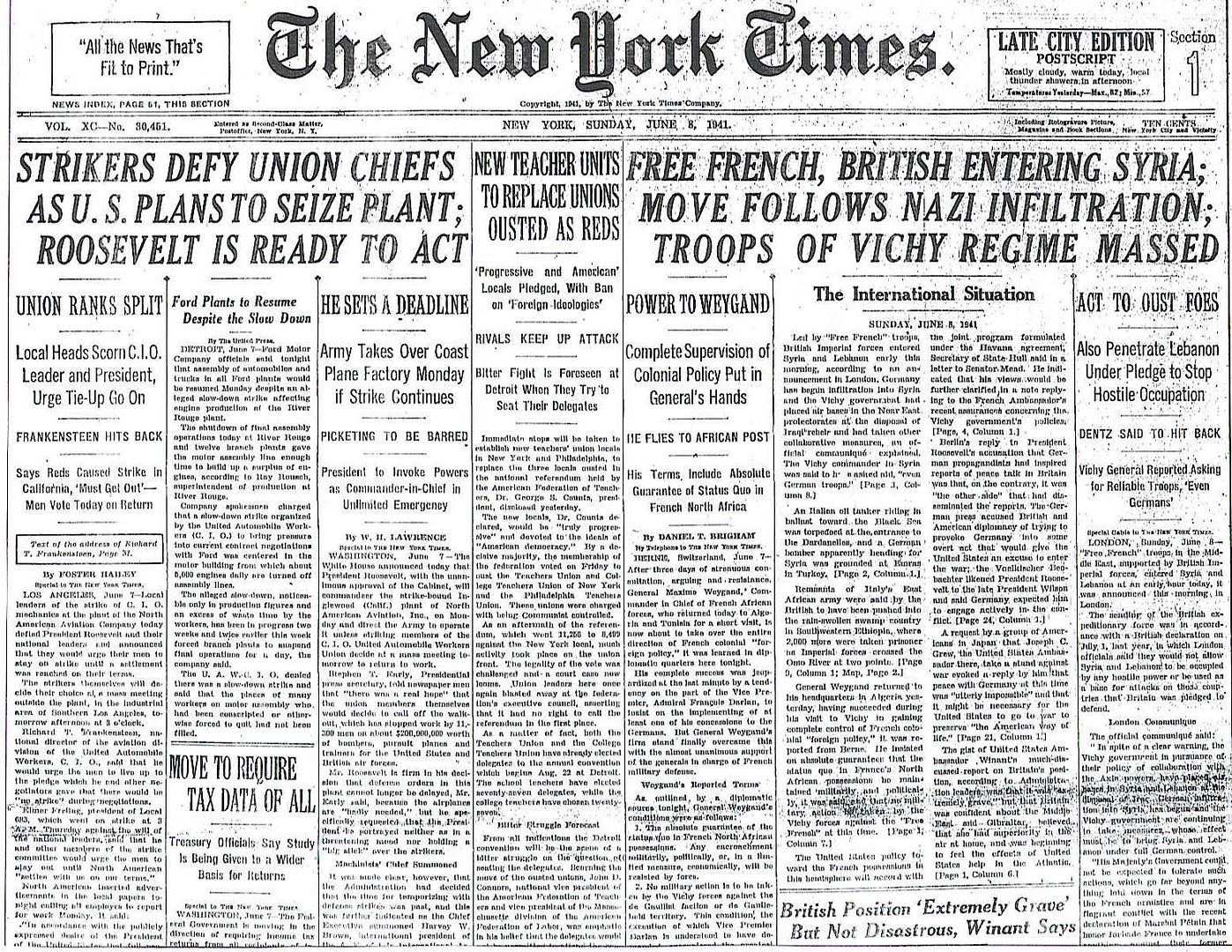
Posted on 06/08/2011 4:25:17 AM PDT by Homer_J_Simpson

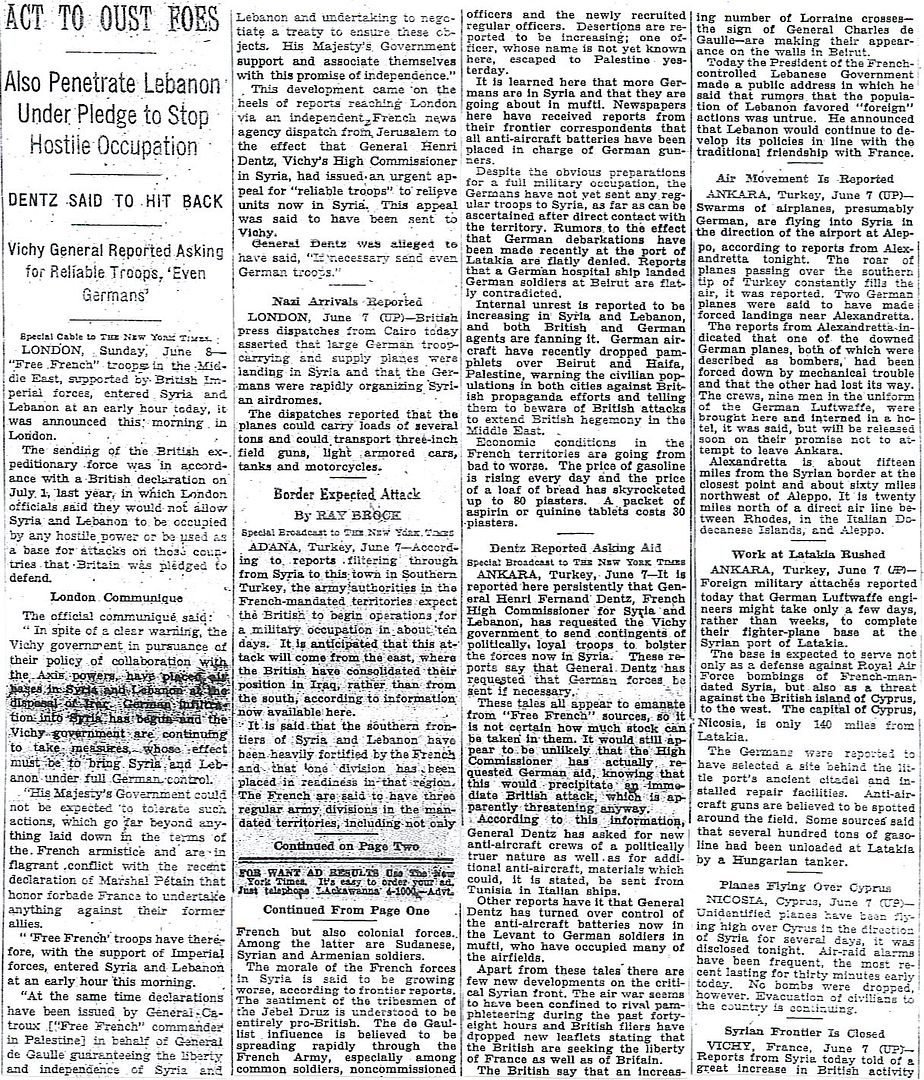
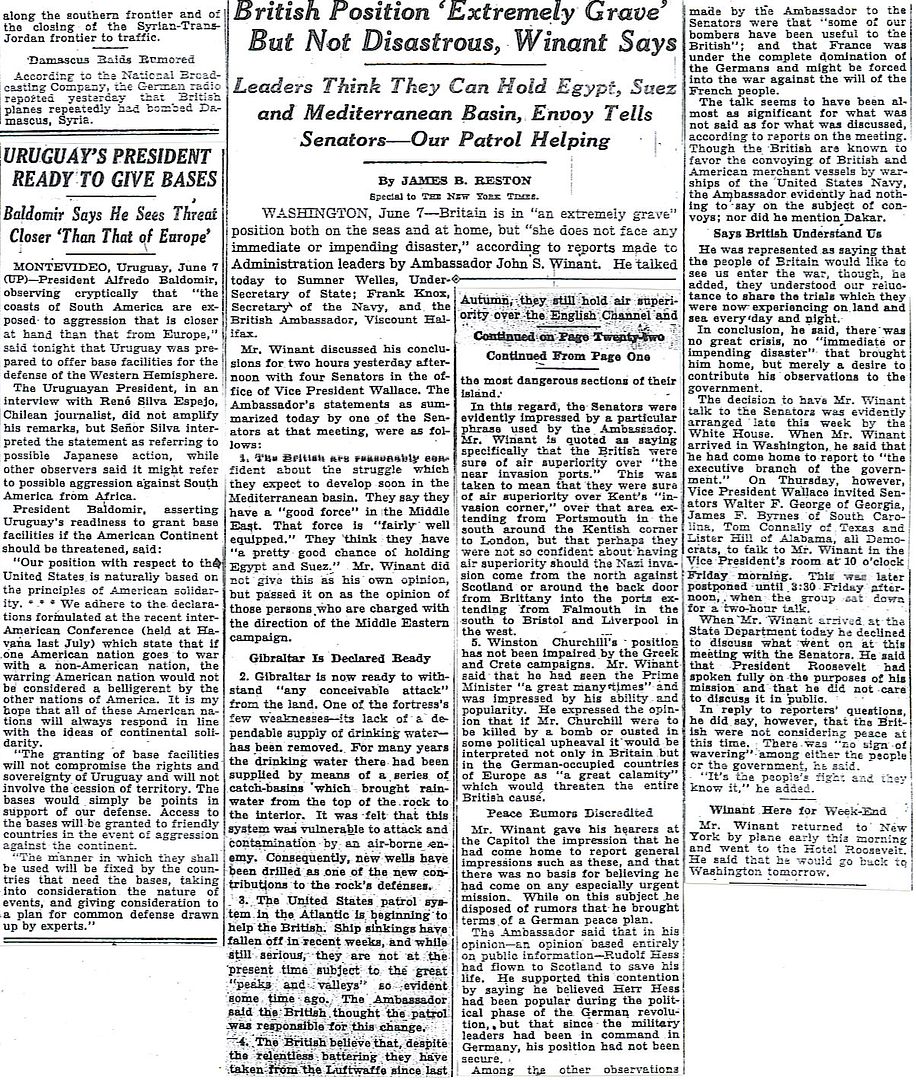
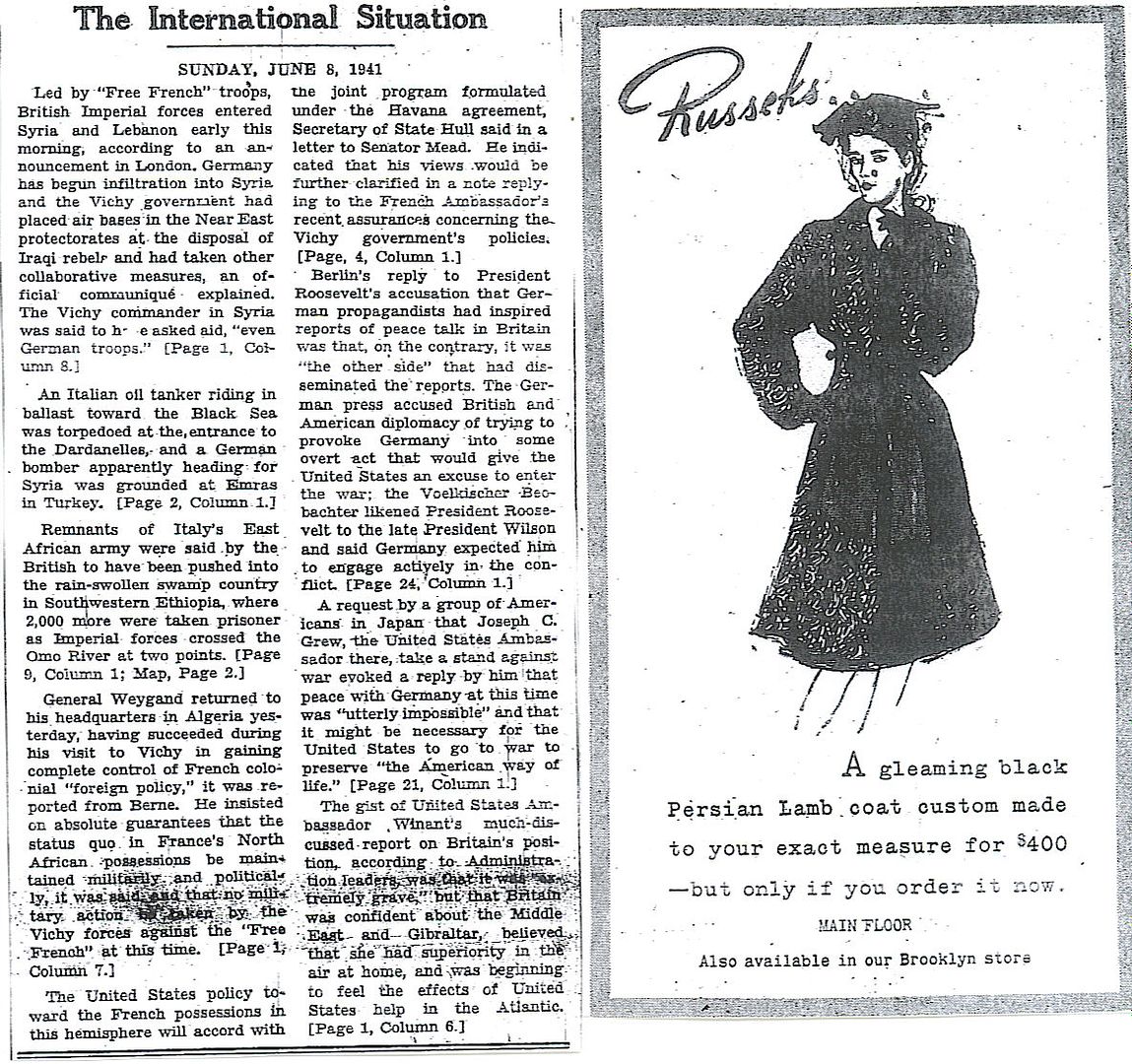
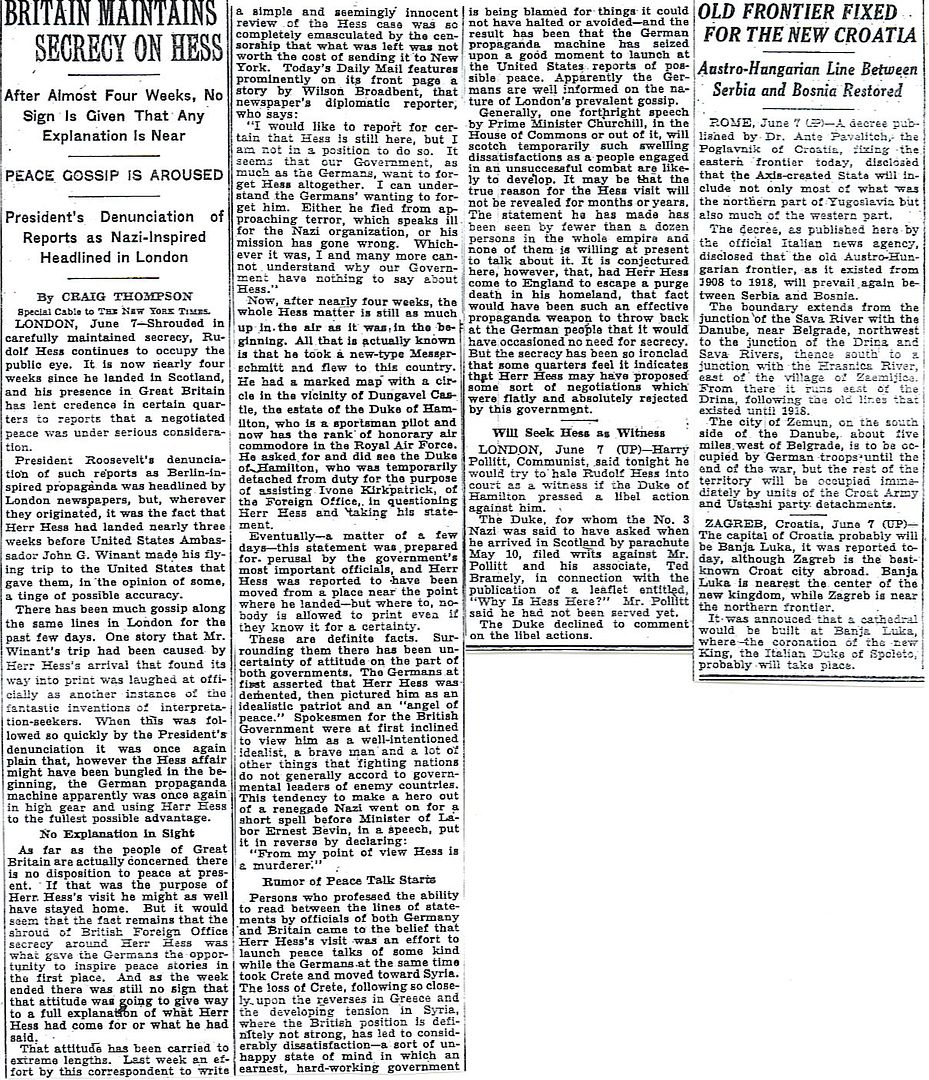
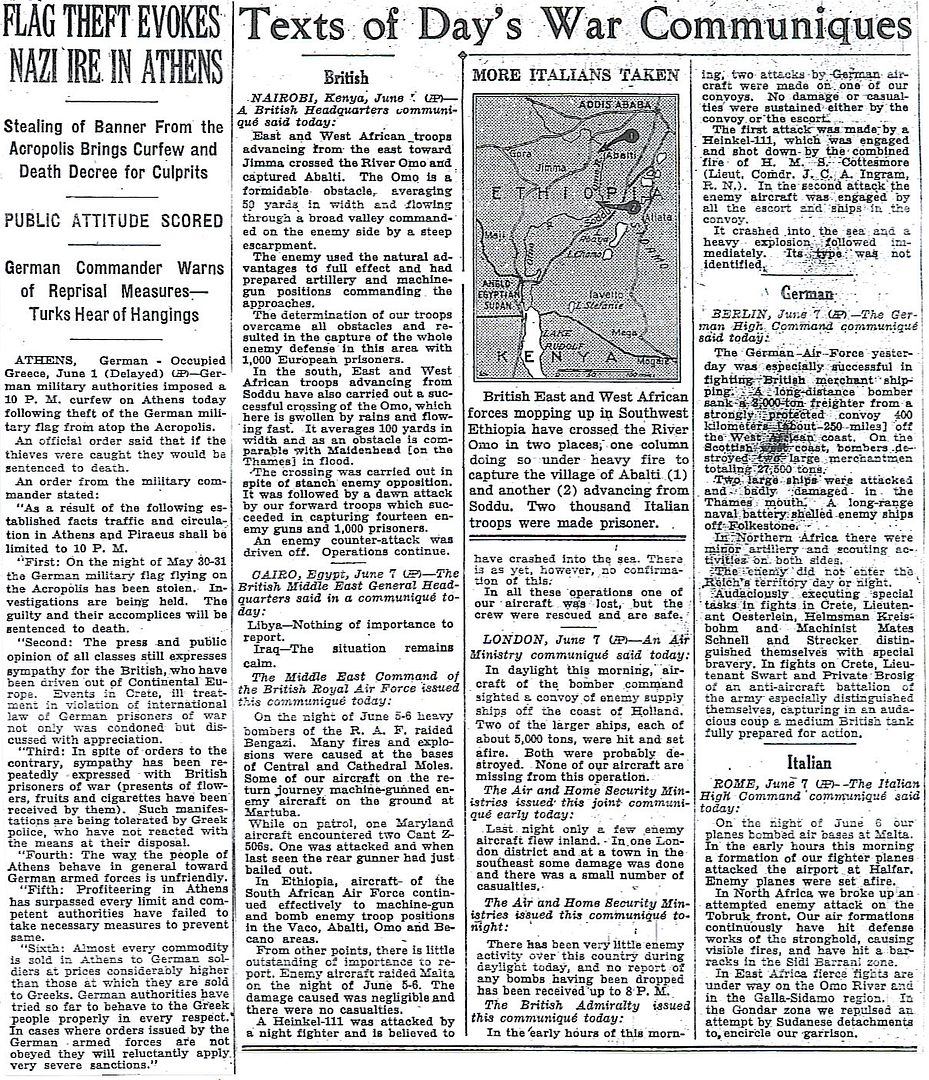
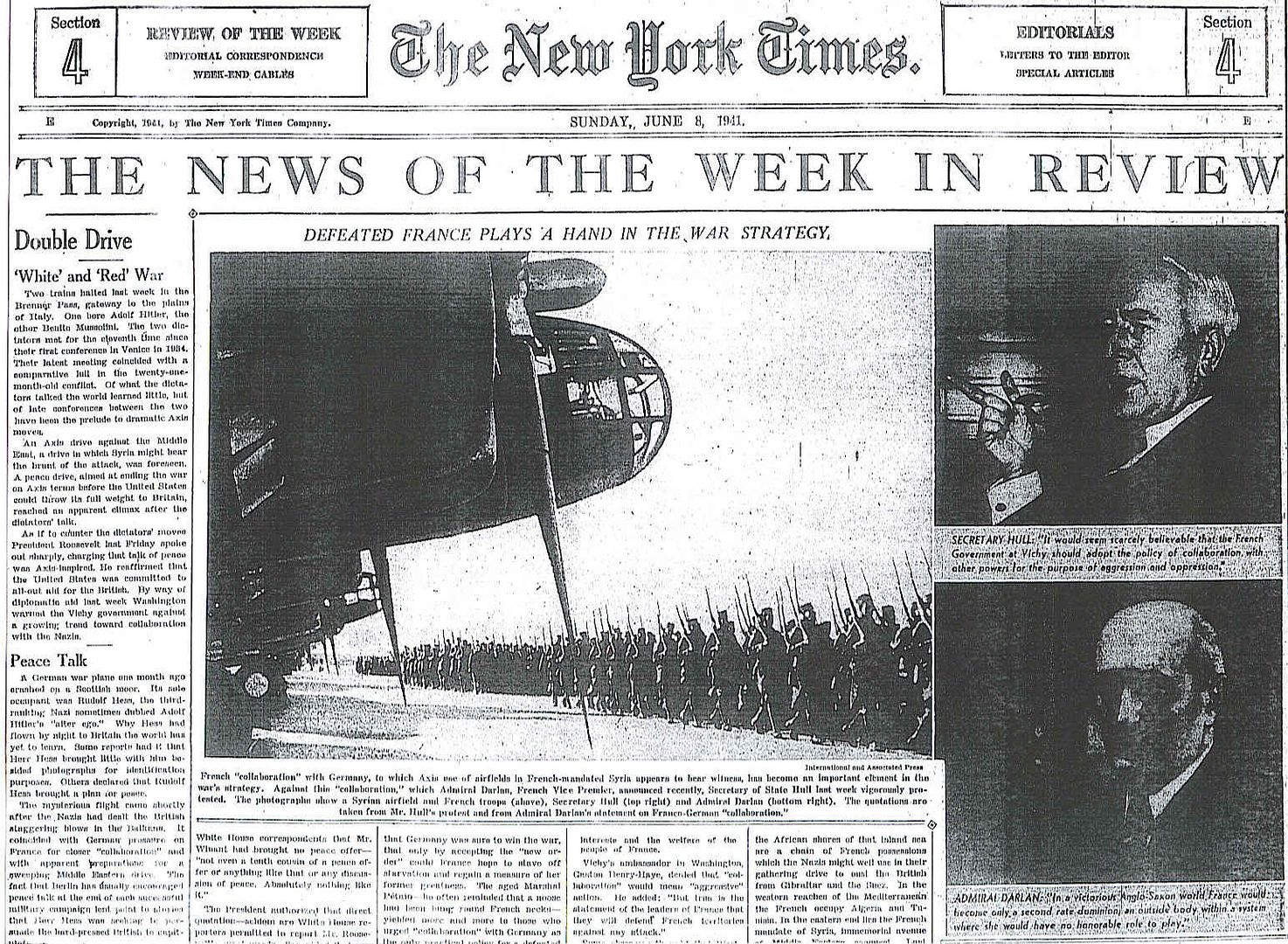
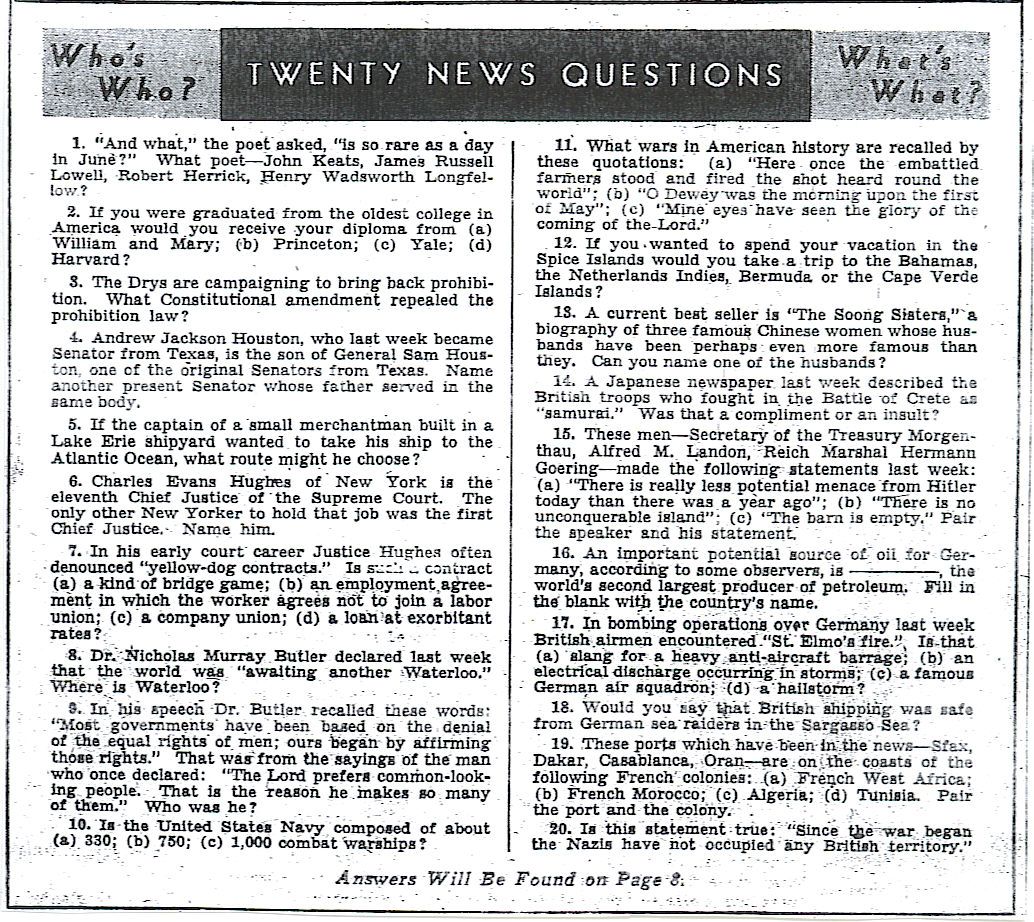
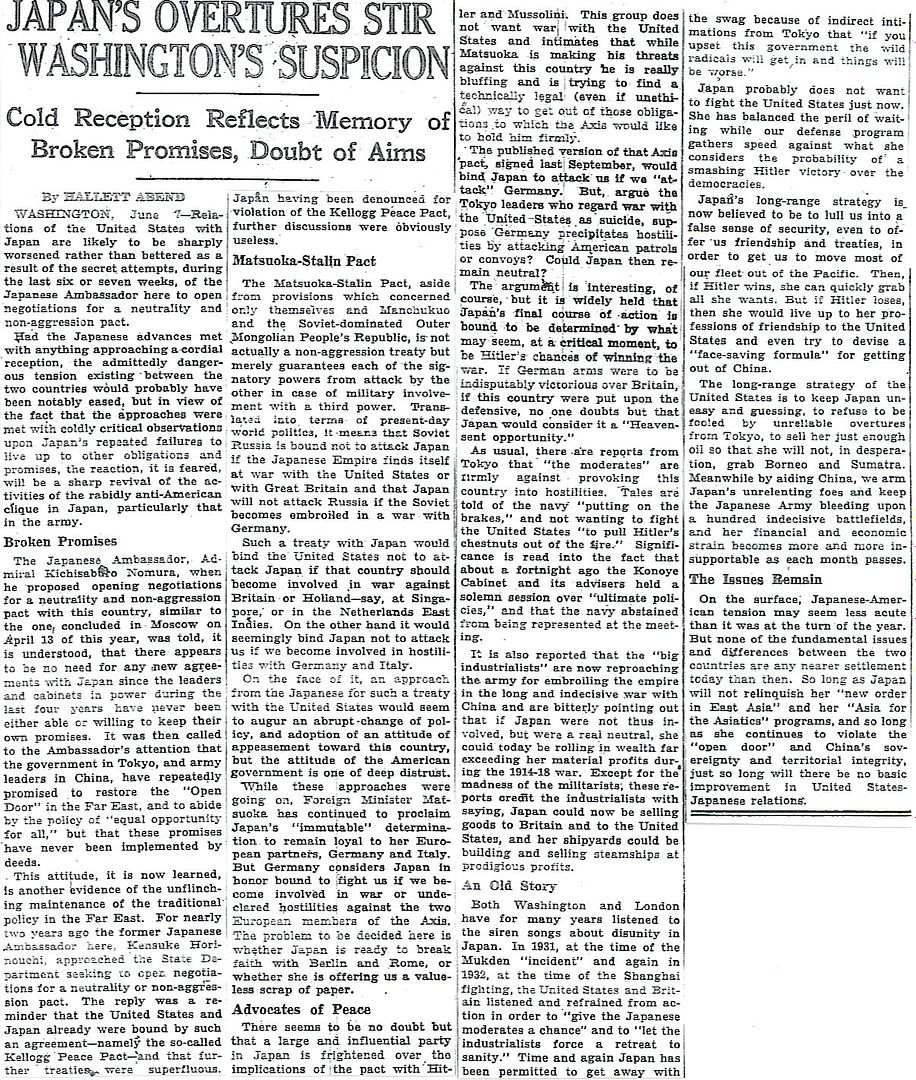
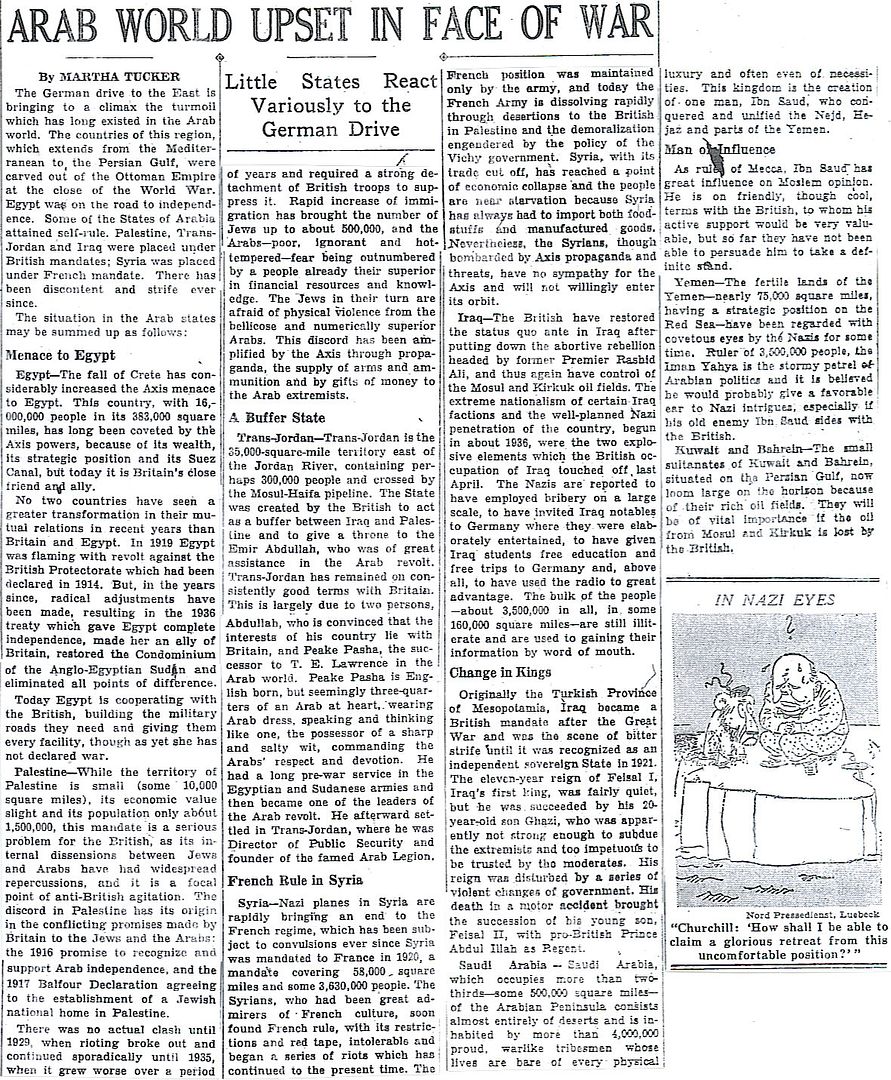
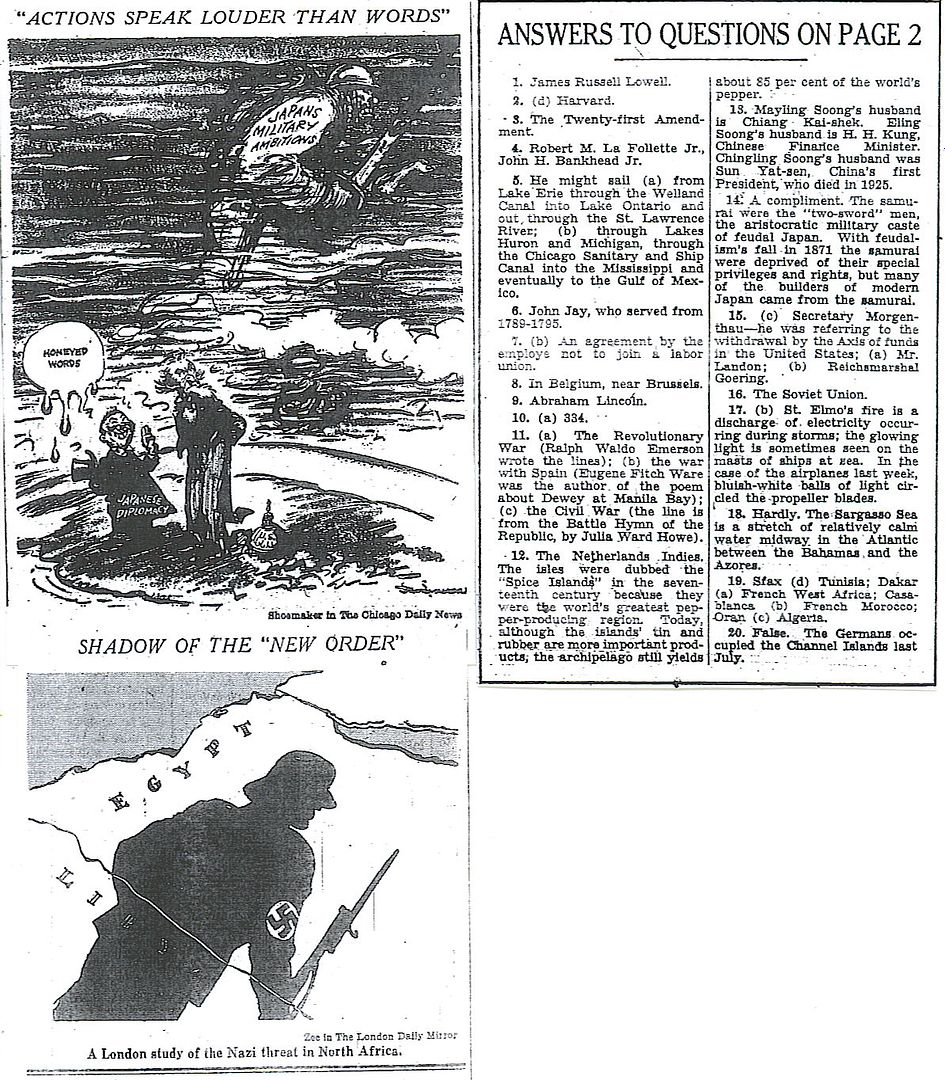
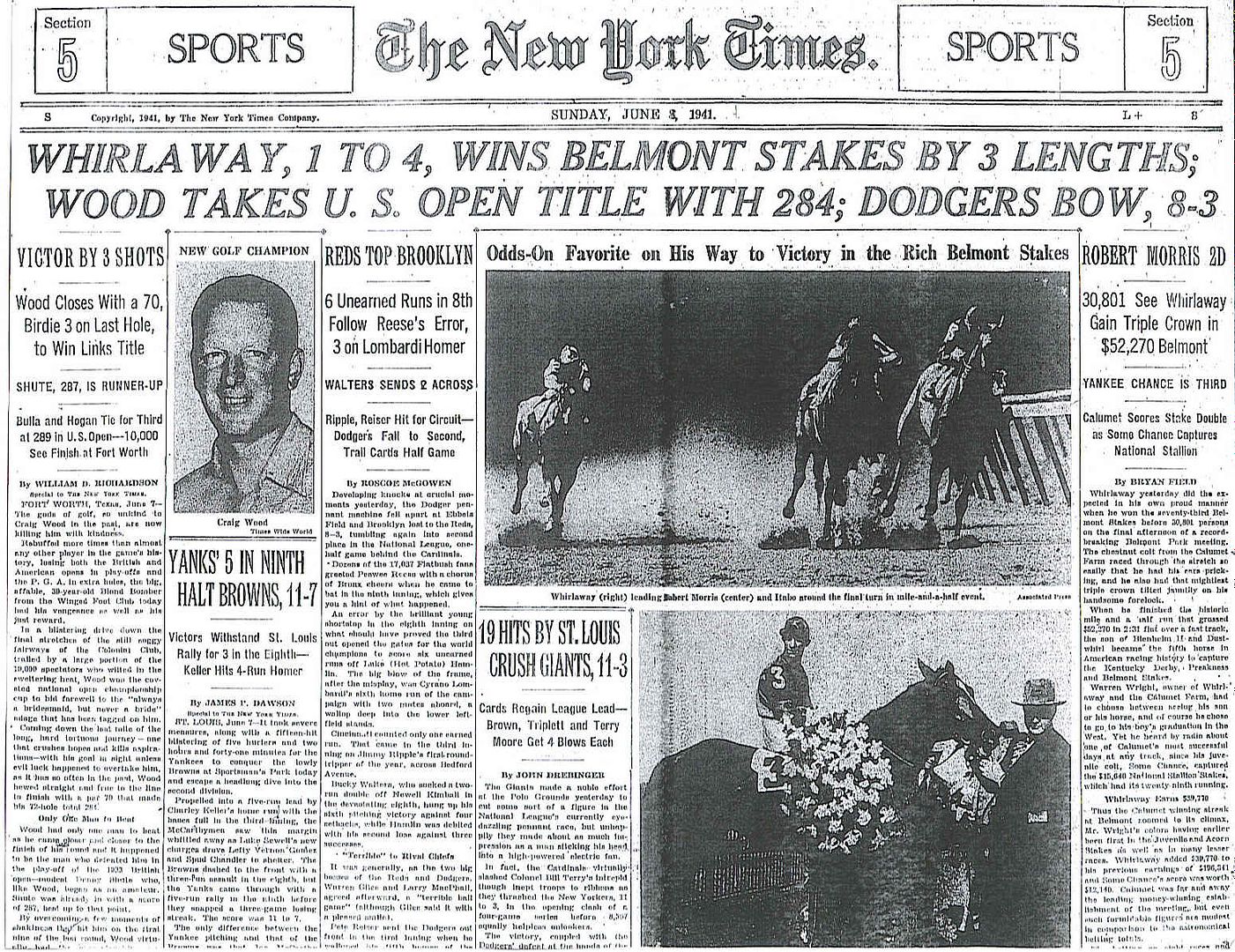
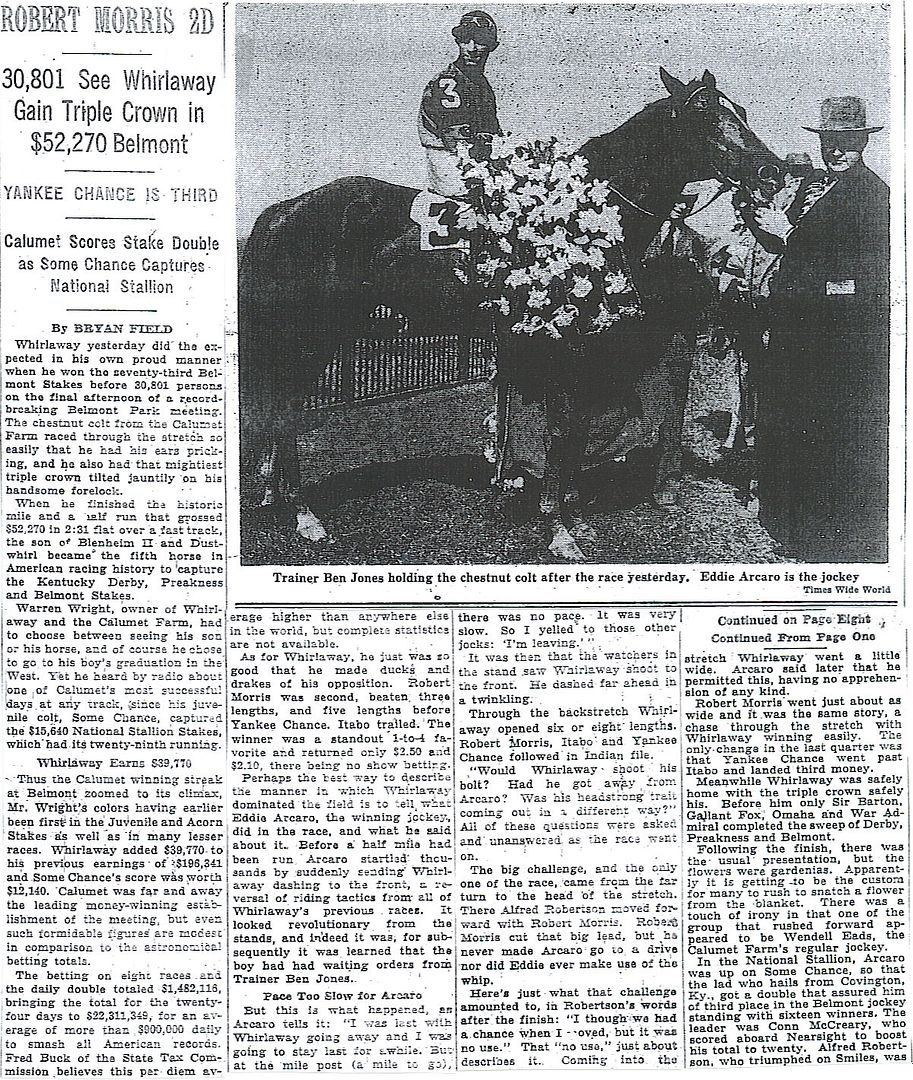
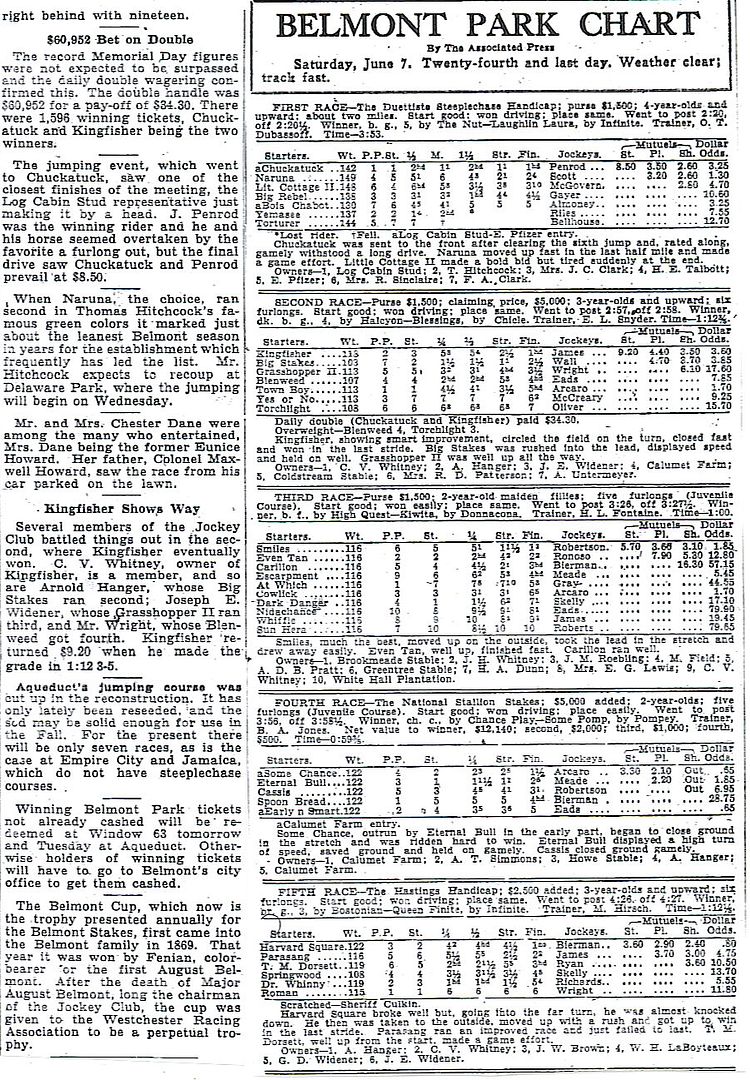
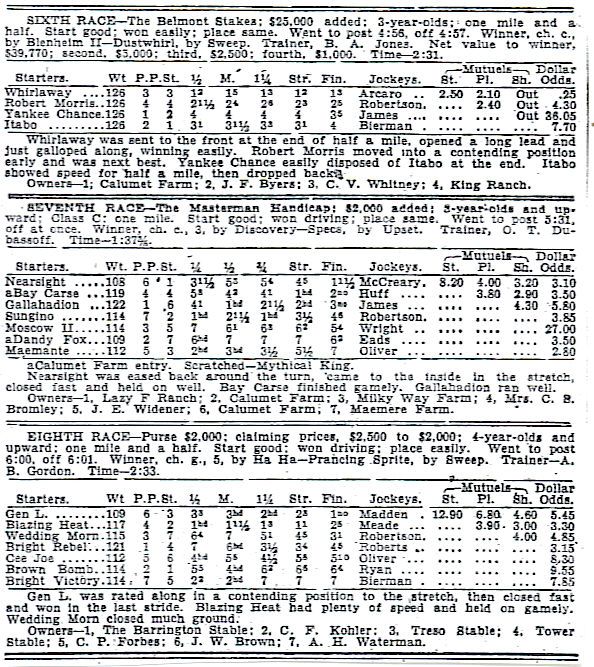
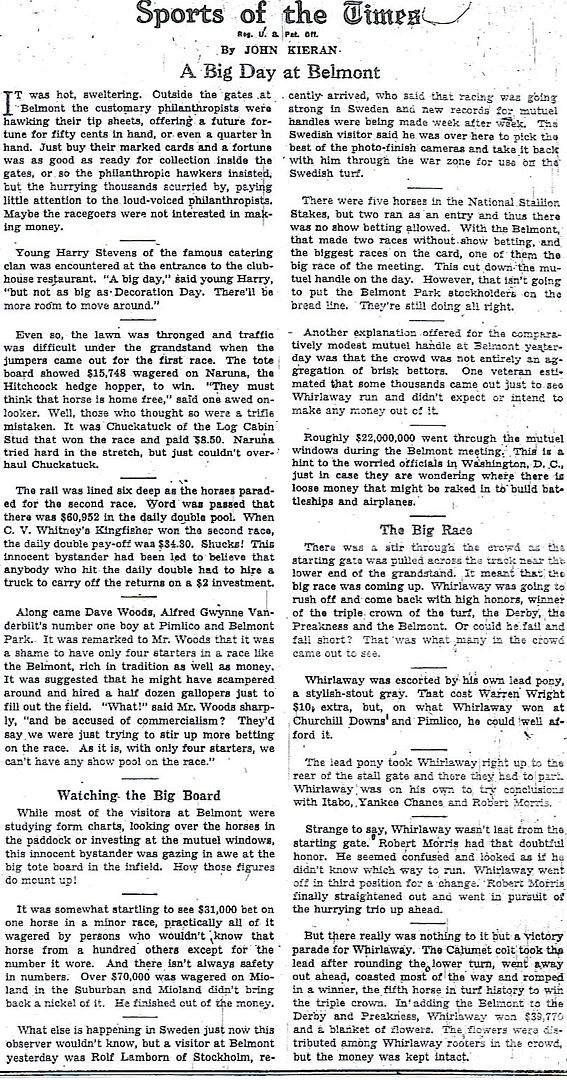
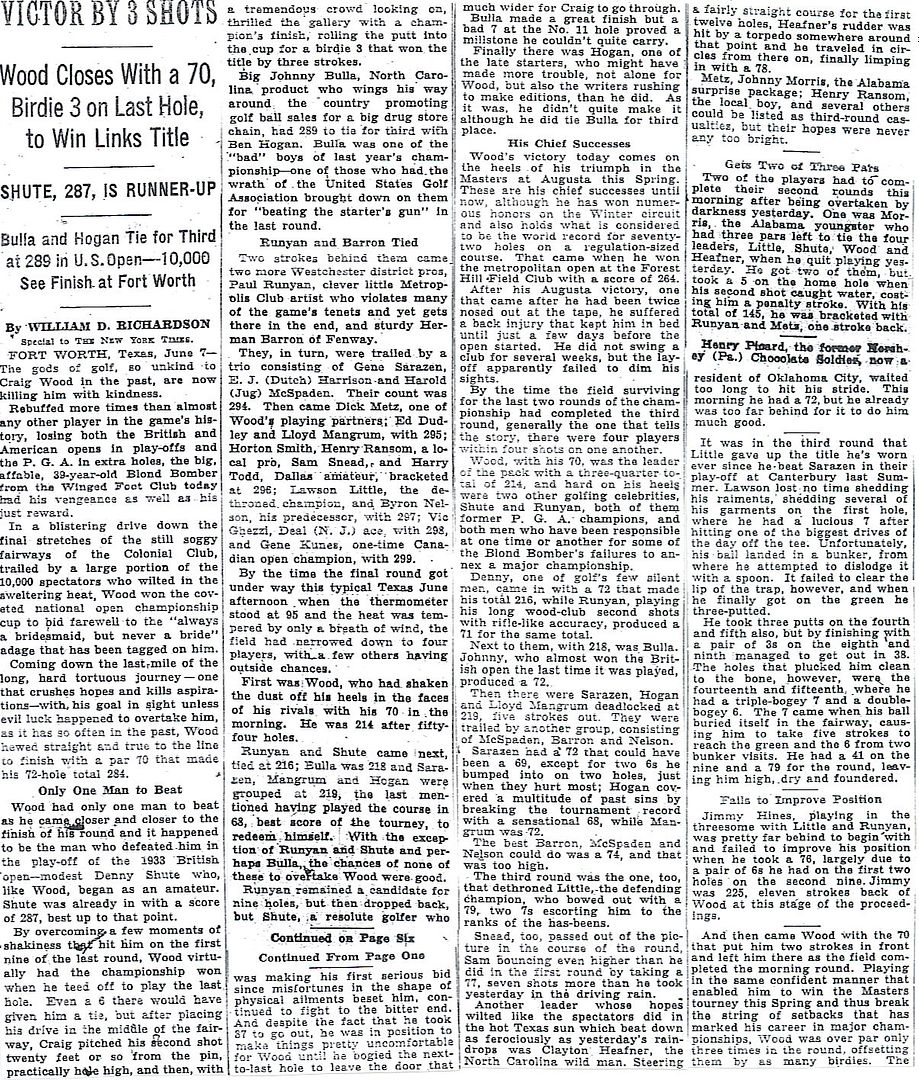
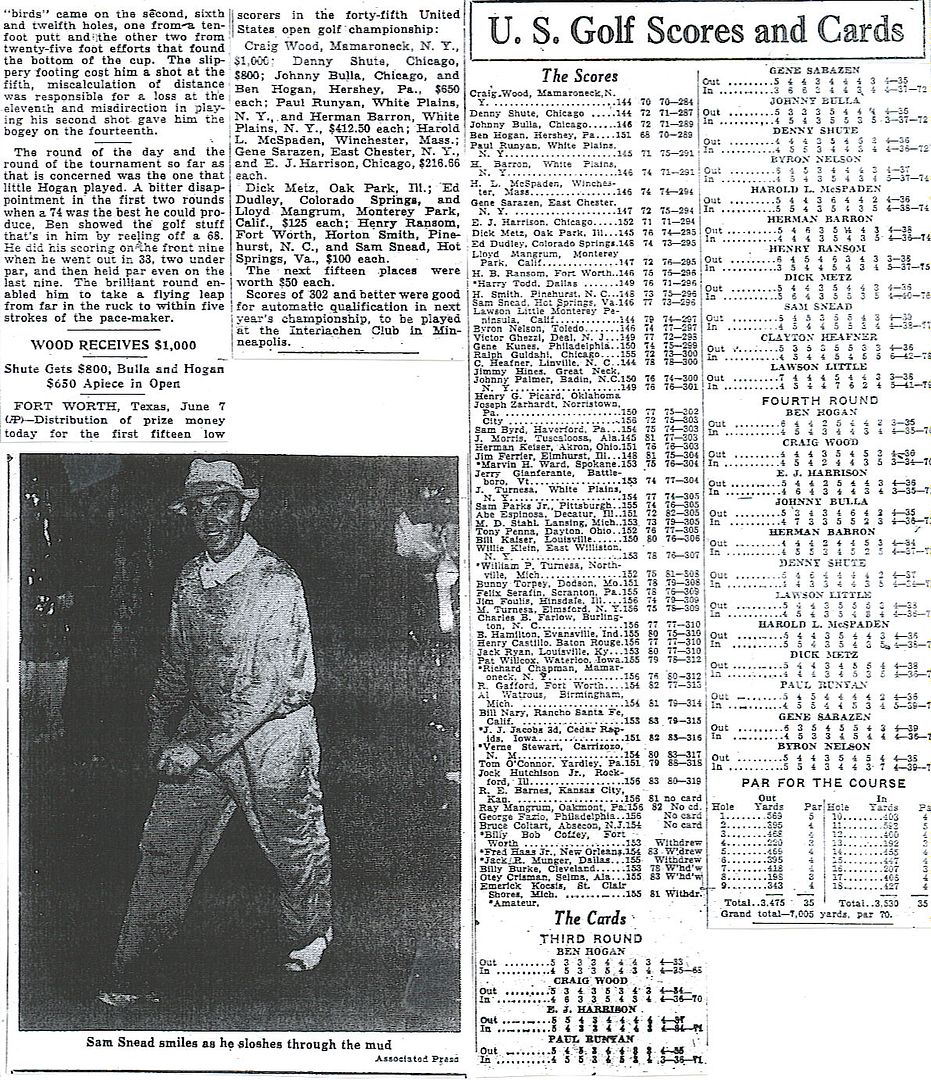
The News of the Week in Review
Twenty News Questions – 8
Japan’s Overtures Stir Washington’s Suspicion – 9
Arab World Upset in Face of War – 10
Answers to Twenty News Questions – 11
Whirlaway, 1 To 4, Wins Belmont Stakes By 3 Lengths
Robert Morris 2d – 13-14
Belmont Park Chart – 14-15
A Big Day at Belmont (Sports of the Times) – 16
Wood Takes U.S. Open Title with 284
Victor by 3 Shots (by William D. Richardson) – 17-18
U.S. Golf Scores and Cards - 18
http://www.onwar.com/chrono/1941/jun41/f08jun41.htm
Allies invade Vichy French Syria
Sunday, June 8, 1941 www.onwar.com
In Syria... At 0200 hours British and Free French forces invade Syria. The British have been increasingly worried by reports of a German presence in Syria in recent weeks. In fact, all German military personnel have now left at the request of Vichy authorities. The attacking force is commanded by General Wilson and includes 7th Australian Division, 4th Indian Brigade and Free French units (including Circassian cavalry, under Col. Collet, in the vanguard of the Free French forces). The defending Vichy forces consist of 45,000 men under the command of General Dentz. The Allied force advances along several lines from positions in Palestine and Transjordan. There is little resistance at first. General Catroux, who has been appointed by General de Gaulle to head the Free French forces, issues a proclamation calling optimistically for Dentz and his men to change sides. The British announce that they seek no territorial gains.
In Egypt... In response to the threat of air raids on Alexandria, the evacuation of about 40,000 people begins.
http://homepage.ntlworld.com/andrew.etherington/month/thismonth/08.htm
GERMANY: In a supplement to Hitler’s Commissar order of two days ago, the OKH directs that political commissars shall be summarily shot.
MIDDLE EAST: Invasion of Syria and Lebanon by Allied and Free French forces. The Free French forces commanded by General Legentilhomme number 6,000 infantrymen, with 8 guns and 10 tanks supported by 24 aircraft. The remainder of the forces are one Australian division, a cavalry and two infantry brigades. and the support of about 60 aircraft. The Vichy forces under General Dentz comprise 18 regular battalions with 120 guns, 90 tanks and as many aircraft; in all more than 45,000 men.
Allied forces totalled 34,000 troops - 5,000 Free French; 9,000 British; 18,000 Australian, 2,000 Indian troops. (Sidney Allinson)
The Allies make no progress on the coastal axis at the Litani Bridge, or on the central axis. The Free French contingent pass through (as planned) up the desert road towards Damascus.
60 RAF aircraft take part. The first operations are raids on the French airbase at Rayak. 80 Squadron RAF Hurricanes are ordered to destroy the Martin 167 Maryland bombers of French 39 Squadron, 1st Bomber Group (GBI/39), which had just arrived at Rayak and by this time had started bombing British columns approaching Quneitra.
Next, 5 Tomahawk fighters of the Australian 3rd Fighter Wing raided Rayak, where the French ground defenses took them for French planes because this was the first time they had seen the Tomahawk. Between them they claim six aircraft destroyed on the ground.
803 Squadron FAA lose three Fulmar fighters against French Dewotine D520 fighters. Plt-Off Roald Dahl (80 Squadron RAF) claims a Potez 63 shot down into the sea. French ace Sous-Lt Pierre Le Gloan shoots down a 208 Squadron RAF Hurricane, his first victory of the Syrian campaign and his 12th of the war. (Michael Alexander)
LEBANON: Beirut: Captain Moshe Dayan, of the Palestine Regiment, leading a section of the Allied attack, receives an eye injury when a stray bullet hits his binoculars.
He was a company commander in the Palmach. His company was acting as scouts for the Allied forces.
The Palmach was a paramilitary organization sponsored by the British — it was not a part of the British army; it was created, commanded and manned by the Haganah which was the underground military organization of the Jewish Agency — the quasi-government body of the Yishuv, Palestine’s Jewish community (The British liason officer with the Palmach was Major Aubrey Eban — a Cambridge educated South African Jew serving in British Army intelligence — would later move to Israel change is fist name to Abba and become the “face of Israel” while serving as Israel’s Foreign Minister form 1966-74). At the time the Haganah did not use military ranks such as “captain” but functional titles such as “company commander”. The Palmach was created in May 1941, to undertake scouting and “commando” missions for the British in the Middle East.
In 1942, the SOE took over the sponsorship of the Palmach and trained them to act as stay behind guerillas in the event of a German occupation of Palestine (which at the time was a very real threat.) In 1943, when the threat of invasion passed and the Palmach and Haganah were caught stealing and hoarding British arms, Britain’s sponsership of the Palmach stopped and the organization went underground.
After recovering from his wounds Dayan opting instead to continue his work with the Haganah. In 1942, he set up a radio network through Palestine in preparation for the expected German invasion. In 1943, he headed the Arab Department (Arab Intelligence unit) of the Jewish Agency. He remained in the post until the end of the War.
(Sidney Allinson and Stu Kohn)
AUSTRALIA: A report from Melbourne outlines the problems the Australian’s are having with her soldiers in the Middle East.
While the countries of Europe are rationing their food supplies increasingly, Australia has too much. Food ships can make three or four trips between Europe and the United States or Canada to every one to Australia, whose surpluses thus are largely unexportable. She must eat the surpluses herself, store them, or destroy them ...
What is going to happen to the farmers in this period of wasted and partially wasted surpluses is another problem of Australia’s government. It is part of the larger problem of Australia’s wartime economic readjustment, including the matter of man power allotable to different industries.
U.S.A.: Washington: Senator Byrd states that there are 67 strikes in the defence industries and threats of 19 more.
Stan Laurel, Oliver Hardy and Chico Marx stage the first Hollywood “camp show” at Camp Roberts near Paso Robles, California. (Jack McKillop)
En-route to Rio Hato, Panama, for a training flight from France Field, Panama in an OA-46A aircraft, Corporal R. Stubbs of Haverhill along with Augustus J. Allen of Myrtle Springs, Texas and Staff Sergeant James D. Cartwright of Los Angeles are lost when their plane goes down. (Adrienne P. Samuels, Globe Staff)
ATLANTIC OCEAN:
U-69 was unsuccessfully attacked by a British Sunderland aircraft as she approached St Nazaire. U-69, commanded by Kapitän-Leutnant Jost Metzler arrived in St Nazaire later that day to a huge welcome having spent 65 days at sea, and covered 7,680 nautical miles. Metzler had made, at the time, the longest voyage ever undertaken by a Type VIIC, demonstrated the feasibility of operating long-range mining missions, tied up British naval resources and sank at least seven ships. (Dave Shirlaw)
Hess is back in the news as the various conspiracy theories begin to emerge. It’s interesting that at first, the Nazis called Hess “demented” and then changed their tune that he was an “angel of peace.” The Brits at first thought he was on an honest peace mission but the hints in the article are that they are now seeing him as demented.
Demented as Hess was, to some extent he was less demented than Hitler. Hess knew of the plans for Barbarossa, and knew that it was insane to take on the USSR while Britain was still an enemy. Had his mission succeeded (which is the most extreme hypothetical; it actually had no chance of success), Hitler would have had a free hand to take on the USSR.
Hess has also become a lasting bone of contention between Churchill and Stalin. Stalin will always suspect the British are double-dealing against him and with the Nazis because of the Hess mission. He knows full well that a peace brokered between Germany and Britain can only have one purpose; for Hitler to turn on him. The funny thing is at this time, Stalin is directing his ire at the British and not listening to their warnings about Barbarossa, and he is not suspicious of Hitler, the one man in the world whom nobody should trust.
Maybe Stalin figured he was the only man in the world whom nobody should trust.
Funny, Homer. But that’s the irony of it all; Hitler was one person nobody should ever trust, and Stalin was probably the most paranoid ruler in the world who never trusted anyone...except the one person nobody should trust.
http://worldwar2daybyday.blogspot.com/2011/06/day-647-june-8-1941.html
Day 647 June 8, 1941
About 30,000 Allied troops invade Vichy French Lebanon and Syria (Operation Exporter), defended by 35,000 regular Vichy troops and 10,000 colonial Levantine irregulars. At 2 AM, Australian, Free French, British and Indian troops advance North from Palestine heading for Beirut (Southern Lebanon) and Damascus (Southwest Syria) under the assumption that Vichy forces will not put up much resistance. Australian 7th Division moves 35 miles North along roads towards Beirut but is held up by French troops dug in on the Litani River in Lebanon. A planned landing of 420 British commandos from the Mediterranean near the Litani River is abandoned due to rough seas. In Syria, British, Indian and Free French troops meet little resistance but make slow progress across the rocky desert. http://www.awm.gov.au/cms_images/histories/18/chapters/16.pdf
http://www.awm.gov.au/cms_images/histories/18/chapters/17.pdf
Disclaimer: Opinions posted on Free Republic are those of the individual posters and do not necessarily represent the opinion of Free Republic or its management. All materials posted herein are protected by copyright law and the exemption for fair use of copyrighted works.